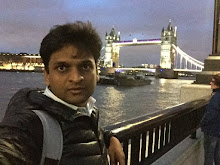It is no exaggeration if I say that Hariharan is one of the pioneers of Indian pop and fusion music. I still admire the work he did along with Leslie Lewis in ‘Colonial Cousins’ the music that was much ahead of its time. They came up with two other albums ‘Aatma’ and ‘The way we do it’, which were good enough but it couldn’t succeed as much as their debut album did. The problem with the other two albums was that it tried to follow the same kind of music they created in their debut album. The format and structure of the songs were already so familiar for the listeners and the surprise element was totally missing.
It is one of those rare cases where the makers and their product became a victim of the success and impact of their own previous work. The big impact and success of ‘Colonial Cousins’ was not just because of its brilliant and innovative music but also because it was for the first time, the world was hearing something like that. They didn’t just make music; they created a new idiom of music. But once it has been done, they should have tried something totally different, which they didn’t do then and hence the subsequent failures.
With the recent ‘Waqt Par Bolna’, Hariharan seems to have realized it, without Leslie though. Hariharan himself has composed and sung all the 10 songs. Hariharan says that the songs of this album belong to ‘Ghazal blues’, a new name for the genre of music he has created for this album. I don’t know the grammar of either Ghazal or blues music to comment anything technically about it but what is important is that this fusion takes us on a pleasant journey.
The problem with this kind of strange fusions is that sometimes composers would forget the big picture of music, that it should emotionally move the listeners. It just would sound like a theoretically perfect score about which scholars of music can write an analysis note by note. They would appreciate it for the brilliance of the composer to have made a grammatically correct mix of both forms of music. What is all the fuss about if the mere sound of it doesn’t touch the senses of a listener? I have listened to mostly filmy Ghazals, but never heard any real blues songs. Thankfully my lack of knowledge helped me to go beyond the technicalities and enjoy the emotional essence of the songs.
With two forms of music, a composer has four elements to play on, the rhythm pattern and the structure of the vocal melody of two forms of music. Here it is even tougher because both forms of music (Ghazal and blues) sound to be progressive in nature. It has a standard fixture and yet gives freedom to improvise to any extent within its boundaries. In this album, Hariharan has restricted the vocal melody mostly to that of Ghazal with typical vibrations, expressions and wavering of notes and the rhythm part mostly avoids tabla and sticks to that of jazz blues.
Fortunately in both blues and Ghazal, there is this trend of repeating a single line more than once with all the repetitions sounding slightly different from the other. This narrows down the line between the two forms of music and hence the fusion in the melodies are not so complex. The orchestration and arrangements for the most part are somewhat filmy or popish and when in some songs it restricts to the authentic jazz blues arrangement, listening to it is a unique experience.
The blues style of free flowing piano, bass and beats backing Hariharan’s exquisite rendition of Ghazals in its purest form, gives us some of the most exhilarating parts of the album. Each and every song has got a haunting melody which sometimes is so easy on ears and sometimes requires our utmost concentration and attention to consume the complete beauty it offers. For casual listeners, such songs could bring some yawn but if you are patient enough, Hariharan’s voice and passionate singing in these songs will definitely mesmerize you.
‘Mujhko chuke’ is a stunning masterpiece which blends everything so beautifully, you cannot figure out where blues and Ghazal meet and part in the vocal melody of this song. I get goose bumps whenever I listen to the melody in the line ‘Itni kushiyaan’ from the song ‘Jab bhi milti’. The violin postlude of this song which introduces a whole new melody at the end is one of the most beautiful soul searching combinations of notes I heard in recent times.
The simple title track is the catchiest one in the album and no wonder they chose this song for the promotional video. Hariharan’s interpretation of traditional ‘Kesariya Baalamva’ is initially very strange to listen to but it grows on you when you begin to wither off your associations with the original version. Stephen Devassy has done a neat job in arranging this song which is a very toll task considering the wandering nature of the main vocal melody. Jolly mukherjee, the music arranger for all the other songs, should be lauded for the beautiful music arrangements, which is innovative, emotive, ambient and harmonic.
You don’t need to have any knowledge in music to listen and enjoy this music; instead you just need to have passion and interest in listening to good music. If you are one of that kind, Grab you copy now.
9.12.2007
Waqt Par Bolna - Hariharan
Posted by P.S. Suresh Kumar at 10:28 AM
Labels: fusion music, Ghazal blues, Hariharan, Waqt Par Bolna
Subscribe to:
Post Comments (Atom)



2 comments:
Suresh, a nice critique. Getting the album right away!!
ts- Thanks
Post a Comment